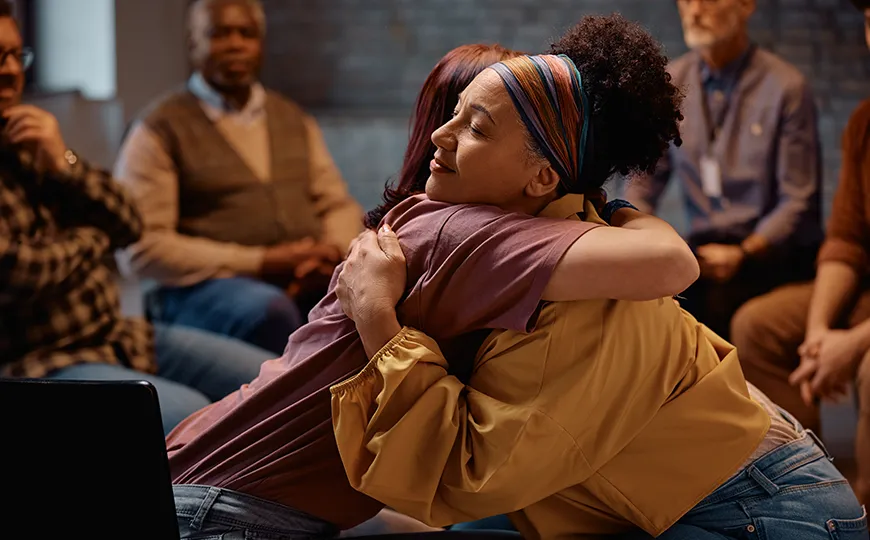Psychology•August 14, 2025
Skip to main content




Counseling begins with a willingness to face what is difficult. It attracts those willing to sit with pain, to stay steady when others step back.
That commitment to meet suffering, to walk with people in uncertainty, and to shape systems from within begins long before licensure. It begins in graduate school, where these capacities are cultivated and strengthened.

A moment of healing where presence, training, and purpose come together.
If you’re exploring counseling psychology master’s programs, it helps to understand not just the curriculum or career outcomes, but what kind of profession this path is designed to shape. The work isn’t just about helping. It is about how you show up to the complexity of human life.
Skills Aren’t Built in Lectures Alone
What does a counseling psychology master’s program actually prepare you for?
You’ll study human development, ethics, assessment, and group dynamics. But real preparation happens in applied settings where theory meets lived experience.
Practicum and fieldwork are essential.
A 2023 study in the Journal of Service-Learning in Higher Education found that counseling students who completed semester-long service placements showed marked gains in self-efficacy, especially those without prior client experience.
This is a profession you learn by being in the room, working with people, making decisions in real time, and reflecting under close supervision as your capacity takes shape.
Licensure and Pathways Forward
Becoming a licensed professional counselor (LPC, LPCC, or the equivalent) takes more than graduating with a degree.
Most states require a master’s degree in counseling psychology, supervised practicum and internship hours, a national exam, and several years of post-graduate supervised experience to become licensed. Some graduates continue into doctoral programs to pursue research or clinical leadership roles. Others move into school-based counseling, nonprofit leadership, or community mental health.
It’s a long path, but a flexible one. And it continues well after the degree is conferred.
The Work Is Worth It. But It Isn’t Easy.
The 2024 ACA Counselor Workforce Survey painted a clear picture. Counselor employment has grown 36 percent since 2014, but many in the profession are navigating debt, burnout, and pay gaps.
The path isn’t without difficulty. But people continue to enter the field because it offers meaning. Because the work matters.
When a client finally gives voice to something unspoken, they need someone who can meet that moment with care, training, and unwavering presence.
Ready to Begin?
A counseling psychology master’s program offers more than professional training. It cultivates how you show up for others and for yourself.
At Meridian University, graduate programs in psychology are designed to support students in becoming thoughtful, practice-based professionals who can meet the needs of real people in real-world systems. The curriculum integrates whole-person learning, experiential training, and a commitment to transformative impact.
If this feels like the kind of work you want to do, you’re invited to schedule a call with an Admissions Advisor. It’s a chance to explore whether Meridian’s approach aligns with what you’re looking for.
Learn More
Interested in learning more about the programs at Meridian?
Contact An Advisor »Attend an Info Session »



Submitting
Stay Inspired
Receive exclusive content on personal and professional transformation via email with expert insights in psychology, leadership, education, and more.
We don’t email frequently and you can always unsubscribe. By continuing, you are agreeing to Meridian’s Privacy Policy.